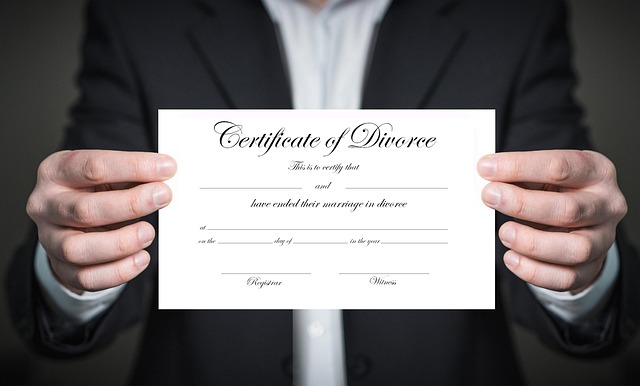Grandparent custody disputes arise when parents cannot care for their children, prompting grandparents to seek legal rights. Courts consider relationships, stability, and child well-being. Legal aid, attorneys, and social workers assist grandparents in navigating family court. Building a case requires evidence of positive grandparental influence and legal arguments based on best interests and extended family importance. Advocacy groups support seniors through legal battles, workshops, and policy changes, ensuring grandparent rights are protected.
Grandparent rights are an essential aspect of family dynamics that often require advocacy in legal settings. This article delves into the complex world of grandparent custody disputes, offering a comprehensive guide for navigating these challenges. We explore the legal framework governing grandparental custody, providing resources and understanding for grandparents seeking their rights. Additionally, we provide strategies for building strong cases and offer advocacy techniques to support families in court, emphasizing the significance of grandparent-child bonds.
- Understanding Grandparent Custody Disputes: Legal Framework
- Navigating Family Court: Rights and Resources for Grandparents
- Building a Strong Case: Evidence and Arguments for Grandparental Rights
- Advocacy Strategies: Supporting Grandparents in Legal Battles
Understanding Grandparent Custody Disputes: Legal Framework

Grandparent custody disputes often arise when a child’s primary caregivers, usually parents, become unable or unwilling to provide care, and grandparents step in to fill this void. These disputes can be complex, as they involve delicate family dynamics and legal considerations. The legal framework surrounding grandparent custody is designed to balance the rights and interests of all involved parties: the grandparents, the parents, and most importantly, the child’s best interests.
Many jurisdictions have specific laws addressing grandparent custody, which vary in their scope and requirements. Generally, courts will consider factors such as the grandparent’s relationship with the child, the stability of the current caregiving arrangement, and the potential impact on the child’s well-being. In some cases, grandparents may need to prove that they have played an active role in the child’s life or demonstrate extenuating circumstances, like parental neglect or addiction, to gain legal custody. The process often involves filing a petition with the family court, where evidence and testimony are presented to support the grandparent’s claim for custody rights.
Navigating Family Court: Rights and Resources for Grandparents

Navigating family court can be a complex process, especially for grandparents facing grandparent custody disputes. It’s crucial to understand their rights and available resources. Many states have recognized the importance of maintaining strong family bonds and have enacted laws to protect grandparent visitation rights. These laws vary by jurisdiction, so it’s essential for grandparents to familiarize themselves with local regulations.
Legal assistance is invaluable in these situations. Grandparents can seek support from legal aid organizations or private attorneys specializing in family law. They can provide guidance on filing for custody or visitation, understanding court procedures, and advocating for their rights. Additionally, family court advocates and social workers can offer valuable resources and support throughout the process, ensuring grandparents are equipped to present a strong case for maintaining or gaining access to their grandchildren.
Building a Strong Case: Evidence and Arguments for Grandparental Rights

In grandparent custody disputes, building a strong case hinges on robust evidence and compelling arguments that demonstrate the benefits of grandparental involvement to the child’s well-being and development. Parents, grandparents, and legal professionals should gather thorough documentation showcasing the positive impact of the grandparent-child relationship. This can include photographs, school records, medical reports, and any other material that highlights the supportive and nurturing environment the grandparent provides.
Legal arguments should focus on established case law and statutes related to family court decisions. Grandparents can leverage legal precedents that prioritize children’s best interests and recognize the significance of extended family relationships. Demonstrating a consistent history of involvement, love, and care can strengthen the case, emphasizing the stability and happiness the grandparent brings into the child’s life.
Advocacy Strategies: Supporting Grandparents in Legal Battles

Grandparent rights advocacy groups play a crucial role in supporting elderly individuals during heated grandparent custody disputes. These organizations employ various strategies to ensure grandparents’ voices are heard and their parental rights protected. One effective approach is offering legal aid and resources, providing them with access to affordable legal representation. Many advocate groups also organize workshops and informational sessions to educate grandparents on their legal options, rights, and responsibilities within family court proceedings.
Additionally, these advocacy organizations lobby for policy changes at local and state levels, pushing for legislation that recognizes the significant role grandparents play in their grandchildren’s lives. They do this by engaging with policymakers, presenting research, and sharing real-life stories to create a compelling case for strengthening grandparent custody rights. By employing these strategies, advocacy groups empower grandparents to navigate legal battles confidently and foster healthier relationships with their families.






